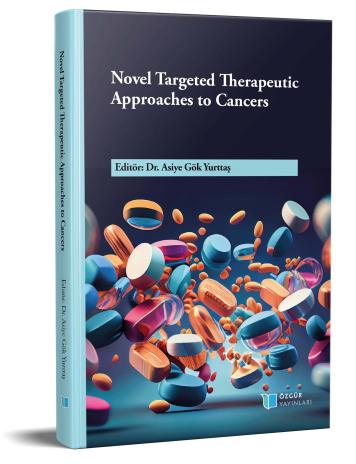
Kolorektal Kansere Moleküler Yaklaşım
Şu kitabın bölümü:
Gök Yurttaş,
A.
(ed.)
2023.
Kanserlere Yeni Hedefli Terapötik Yaklaşımlar.
Özet
Kolorektal kanser(KRK) yüksek morbidite ve mortalite oranları ile en sık gözlenen kanserlerden biridir. Teknolojik gelişmeler ve yapılan çalışmalar sonrasında hastalığın erken tanı alma oranları oldukça artmıştır. Bununla birlikte olguların önemli bir kısmı halen ileri evrede tanı almaktadır. Bu nedenle çalışmalar özellikle hastalığın moleküler patogenezi üzerine yoğunlaşmıştır. Kolorektal kanserler heterojen ve multifaktöriyel bir hastalık grubudur. KRK’ler familyal ve sporadik olmak üzere farklı formlarda ortaya çıkabilir. KRK gelişiminde rol oynayan; Kromozomal Kararsızlık (CIN) yolağı, Mikrosatellit Kararsızlık (MSI) yolağı ve CpG Adası Metilatör Fenotipi (CIMP) yolağı olmak üzere üç farklı moleküler yolak tanımlanmıştır. Hastalık etiyopatogenezinde çok sayıda genin etkili olduğu bir mekanizma söz konusudur. Hastalık ile ilişkili genler arasında özellikle APC, KRAS, NRAS, BRAF, TP53 ve MLH1, MSH2, MSH6 ve PMS2 gibi DNA yanlış eşleşme onarım genleri bu moleküler yolaklarda yer almaktadır. Kolorektal karsinogenezin moleküler temelinin anlaşılması, hastalığın tanı, prognoz ve tedavisi açısından önemlidir. Dolayısıyla günümüzde klinikte kullanılan hastalık kılavuzlarında da bu genler yerini almıştır. Kılavuzlarda bu genlerdeki genetik değişikliklerin tespit edilebileceği moleküler yöntemler ve sonuca göre izlenecek algoritmalar ayrıntılı olarak anlatılmaktadır. Bununla birlikte kolorektal kanserlerin moleküler mekanizmalarını aydınlatmaya ve kişiye özel hedefli tedavi yöntemleri üzerinde umut vaat eden çalışmalar devam etmektedir

